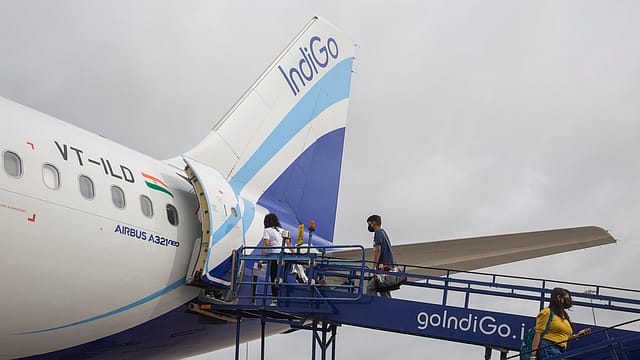IndiGo’s Poha contains 83% more sodium than Maggi, claims influencer; airline responds
ADVERTISEMENT

Amid a debate over FMCG giant Nestle putting "added sugar" in baby Cerelac products in India and other low-and-mid-income countries, an influencer stirred another controversy over high "sodium content" in the food served in India’s largest carrier IndiGo.
Revant Himatsinghka, known for taking on FMCG companies through his informative content, says the Poha food item served in IndiGo flights has 83% more sodium than Maggi, which is widely known as a “high sodium” food.
"Most of us already know that Maggi is a high-sodium food! What most of don’t know is that Indigo’s Magic Upma has 50% more sodium than Maggi, Indigo’s Poha has ~83% more sodium than Maggi, and Daal Chawal has as much sodium as Maggi," says Revant, adding that just because “Upma”, “Poha”, “Daal Chawal” sound healthy, does not mean they are healthy.
The influencer also shared a video, in which he claimed sodium content found in most food items served in IndiGo, including 'Magic Upma', 'Mom Poha', and 'Magic Dal Chawal', was much more than Maggi, which is a Nestle product.
"Always remember junk food pretending to be healthy, is even more dangerous than junk food. Indians already consume too much sodium and consuming excess sodium on a regular basis raises our blood pressure and can result in hypertension, heart issues and kidney issues," he adds.
He adds one of the reasons why people don't feel the taste of excess salt in airlines is because "high altitudes reduce our taste bud sensitivity". This is also one of the reasons why most airlines add excess salt in food, he says.
As the video went viral on social media, IndiGo came out with a statement, saying that all the food served on board Indigo flights carries details on ingredients and nutritional information as per Food Safety and Standards Authority of India (FSSAI) norms. "Passengers have the choice of choosing from freshly prepared pre-booked meals or purchase pre-packaged food products on board," says IndiGo, adding the salt added to foods onboard Indigo remains "well within prescribed" limit.
Revant also released another video related to Switzerland-based FMCG major Nestle, which has been accused of adding sugar in infant food products in India and African countries, but not European nations.
"Is an Indian baby's health less important than a European baby's health? No amount of added sugar is OK for a baby's health and giving added sugar to babies results in long-term health issues like obesity and tooth decay. (Source: US Department of Health)," he says.
Notably, Public Eye, a Swiss investigative organisation, and the International Baby Food Action Network (IBFAN) stirred a debate on Thursday after their latest report said India is among the 12 low-and-middle countries where Nestle sells baby food products which contain “high levels” of added sugar. In Switzerland, where Nestlé is headquartered, such products are sold with no added sugar.
Nestlé brands these baby-food brands as “healthy” products, which points to the Swiss food giant's “hypocrisy and deceptive marketing”, the report said. Notably, in India, where sales surpassed $250 million in 2022, all Cerelac baby cereals contain added sugar, on average nearly 3 grams per serving, says the report.
The number is the highest in other lower and middle-income countries, with the Philippines, Nigeria, and Senegal in the top three.